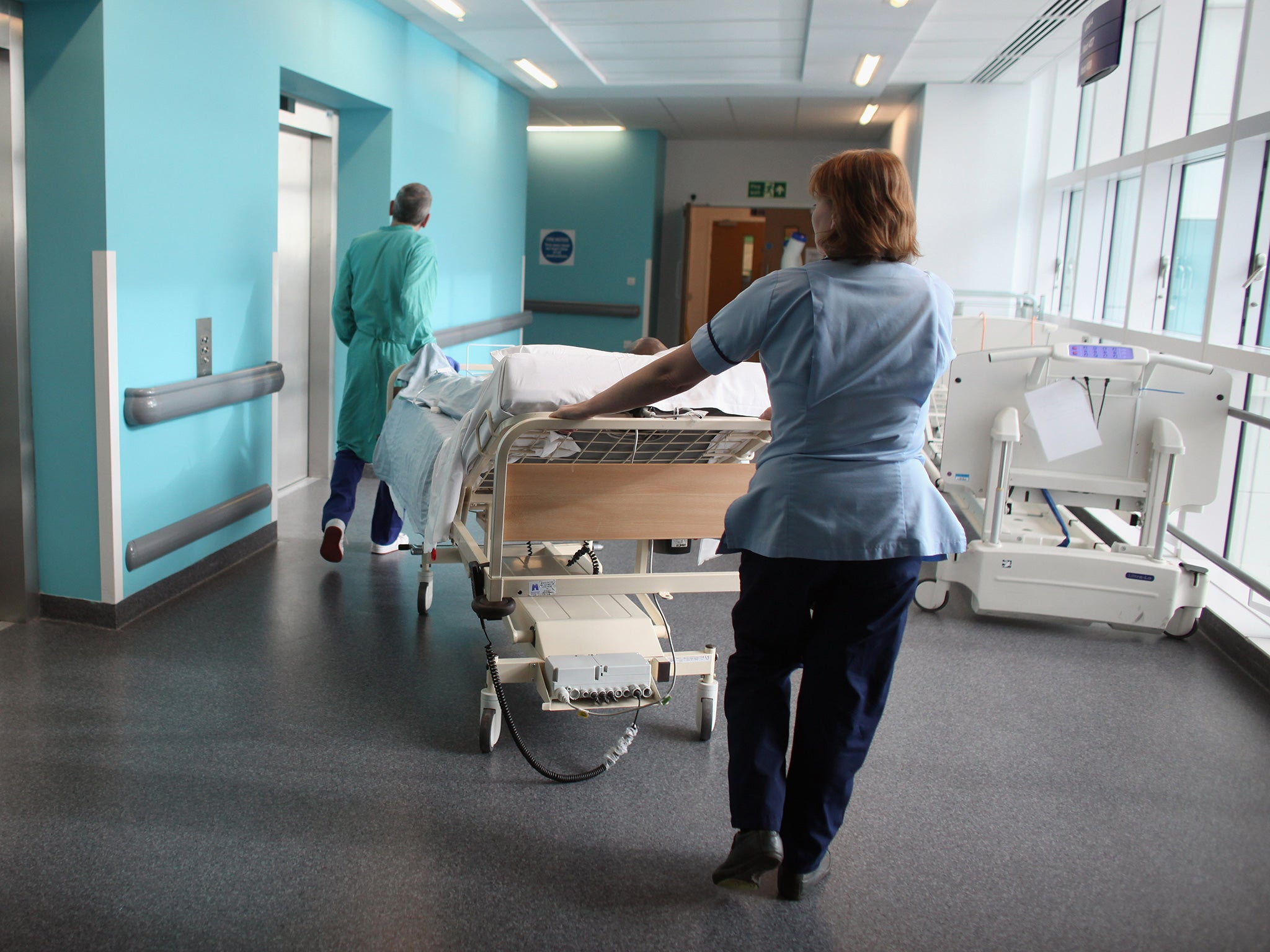Needless overuse of NHS services led to my mother's death, claims GP
‘Decline in community help left doctors too busy to see her’

Your support helps us to tell the story
From reproductive rights to climate change to Big Tech, The Independent is on the ground when the story is developing. Whether it's investigating the financials of Elon Musk's pro-Trump PAC or producing our latest documentary, 'The A Word', which shines a light on the American women fighting for reproductive rights, we know how important it is to parse out the facts from the messaging.
At such a critical moment in US history, we need reporters on the ground. Your donation allows us to keep sending journalists to speak to both sides of the story.
The Independent is trusted by Americans across the entire political spectrum. And unlike many other quality news outlets, we choose not to lock Americans out of our reporting and analysis with paywalls. We believe quality journalism should be available to everyone, paid for by those who can afford it.
Your support makes all the difference.A GP whose mother died shortly after being turned down for an appointment at her local surgery has written a stinging attack on the needless overuse of health services, caused by a decline in community help for the vulnerable.
Alan Woodall’s mother, Catherine, died aged 69 after a month in a coma. A few days before she fell into the coma she was feeling unwell, but her local GP surgery did not have an appointment available until the following week.
Dr Woodall, who works as a GP in Wales, said his mother’s death was “as preventable... as I’ve ever seen”. He added that her delay in getting help was partly due to “a very small, but massively overusing, section of the population” who felt entitled to clog GPs’ surgeries with very minor problems.
In a post on Resilient GP, the organisation he co-founded to combat burnout in his profession, Dr Woodall wrote: “I am writing from the bedroom of my parents’ house, having arrived here late at night. I wish it was in pleasant circumstances, but sadly my mother has just died, at 69. A life cut short, a husband bereaved, a son without a mother. Today I join the ranks of those who have been let down by the NHS, the professional leaders and academics, the government, but also a community of Britons. My mum died of biliary sepsis and hepatic encephalopathy after a month in a coma. The care she received by the doctors, nurses and other workers was exemplary .... But all are overworked, under-resourced, and this was as preventable a death as I’ve ever seen.
“My mum became generally unwell a few days before my dad found her in a coma. Being a working-class miners’ family, who grew up in a spirit of solidarity and community support, and taking only what they really needed from the state, they did not want to bother her GP. A day before she was admitted to hospital, they tried to get her an appointment with the GP, but not knowing how to press the buttons ahead of those more savvy consumers well trained in claiming emergency need for their complaints ... there were no appointments available until the next week.
“She retired to bed and never properly woke up again.”
Dr Woodall told The Independent he did not blame the patients, saying that their reliance on GPs was a symptom of the way community support has disintegrated. “We have fractured families and communities which don’t help each other out, [so] all the problems and minor illnesses that used to be tackled in the community [are ending up with the GP]. We have become the social worker, the priest, the mother-in-law, the family friend to everybody, and we can’t do that because we’re simply overwhelmed by demand.”
He said the feeling of entitlement to treatment no matter how insignificant the problem is being stoked by politicians and the media. “People want their GP to be like Tesco, 24/7 convenience, which I would be delighted to deliver if we had the funding and staff to do it, but we don’t.”
In his concluding remarks, a paean to his mother and the former health service he misses, he writes: “My mum died, too young, due to an uncaring government, a medico-political elite who debate in committees but have rarely experienced poverty themselves as I have, and yet profess to understand it better than I do, and a community who have not had to make sacrifices and no longer understand that a precious resource like the NHS should be used carefully, responsibly and should be cherished.”
Join our commenting forum
Join thought-provoking conversations, follow other Independent readers and see their replies
Comments